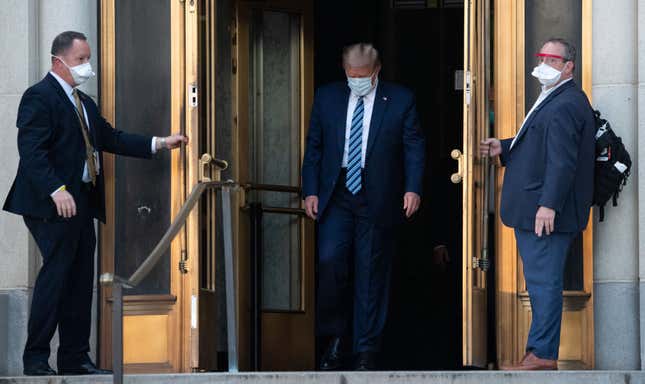Man Facing Death Suddenly No Longer Gives a Shit About God
Politics

On Friday, White House physician Sean Conley announced President Trump had begun yet another experimental course of treatment for covid-19 with REGN-COV2, an antibody “cocktail” that has been used in trials with fewer than 1,000 patients and have not received emergency use authorization from the FDA.
By Monday stock prices for the company that developed REGEN-COV2 had jumped nearly 10 percent. Analysts say it’s set to become a big seller.
-

-

-

-

-

-

-

-

-

-

-

-

-

-

-

-

-

-

-

-

-

-

-

-

-

-

-

-

-

-

-

-

-

-

-

-

-

-

-

-








































